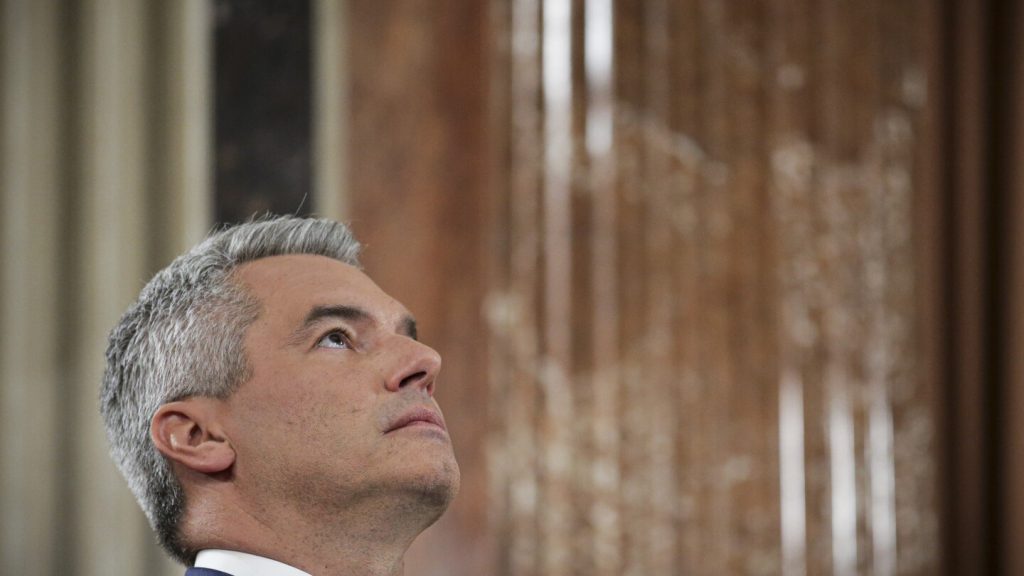Austria’s president has tasked incumbent Chancellor Karl Nehammer with forming a new government after the far-right Freedom Party won a national election for the first time. Despite the traditional practice of asking the leader of the strongest party to form a government, President Alexander Van der Bellen deviated from this norm due to a stalemate following the September parliamentary election. Nehammer’s conservative Austrian People’s Party announced that they would not work with the Freedom Party under its leader, Herbert Kickl, and the other three parties in the new parliament also refused to collaborate with the Freedom Party.
Following the election, the Freedom Party emerged as the leading party with 28.8% of the vote, ahead of Nehammer’s party with 26.3%. The center-left Social Democrats placed third with 21.1%. The outgoing coalition of Nehammer’s party and the environmentalist Greens lost their majority. Van der Bellen called for talks among the three strongest parties to explore potential cooperation. However, on Monday, it was confirmed that all parties remained firm in their decision not to work with Kickl, prompting the president to ask Nehammer to form a government and initiate discussions with the Social Democrats.
With the Austrian People’s Party and the Social Democrats holding only a slim majority in the new parliament, considerations for a third partner are being made for stability. The Neos party, which secured 9.1% of the vote, is a likely option for a coalition government. The Freedom Party capitalized on concerns regarding immigration, inflation, and other issues to achieve its best-ever result in the election. While it has previously been part of governments led by the People’s Party, tensions with leader Kickl have made collaboration difficult. Nehammer emphasized the need for change and reforms in the country, highlighting the economy, immigration, and integration as key priorities.
In response to the president’s decision, Kickl expressed determination, stating that the final government coalition was not yet determined. He reassured supporters that the Freedom Party could potentially lead the government if the will of the voters is respected. Nehammer, on the other hand, acknowledged the challenges ahead in forming a stable government supported by a broad majority in parliament. He emphasized the importance of a three-party coalition for stability and progress, while acknowledging that the outcome of the talks and negotiations could impact the formation of the government. As negotiations unfold, the future government of Austria remains uncertain, with the possibility of a coalition led by the Freedom Party still on the table.


